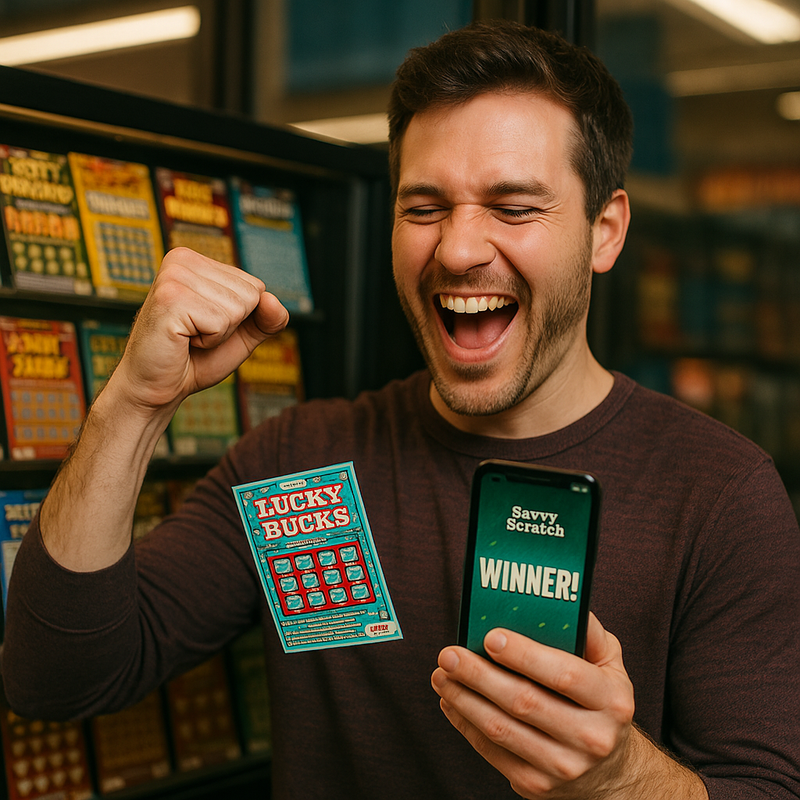
Scratch-Offs Aren’t Just Luck — They’re Built Like Strategy Games
8/23/2025
Scratch-Offs Aren’t Just Luck — They’re Built Like Strategy Games
Most people treat scratch-offs like a coin flip: you buy, you scratch, you hope. End of story.
But if you step back, you’ll see something different. Scratch-offs aren’t random pieces of cardboard — they’re carefully designed games with rules, structures, and strategies baked in.
And just like poker or blackjack, the players who understand the design walk away with more value than the ones who play blind.
The “Game Design” of Scratch-Offs
Every scratch-off has:
- A fixed number of tickets — Think of this like a deck of cards.
- A fixed number of prizes — The equivalent of knowing how many winning hands exist in the deck.
- A structure of payouts — Small wins, medium wins, jackpots. Just like poker has pairs, flushes, and full houses.
This is why scratchers are more like structured games than true “luck machines.” If you know how to read the structure, you gain an edge.
Why Most Players Miss This
The lottery counts on players buying emotionally:
- They see flashy designs.
- They hear about someone else’s win.
- They buy because it’s payday or “they feel lucky.”
None of that changes the underlying math. Without paying attention to the game’s actual design, most people are gambling blind.
Lessons From Other Strategy Games
- Poker: You don’t play every hand — you wait for the right ones.
- Blackjack: You don’t hit on 19 — you play the odds.
- Sports betting: You don’t bet blind — you research the stats.
So why would you buy a scratcher without checking whether jackpots are still available?
Why play a game where the “full house” (the jackpot) has already been dealt to someone else?
How to Think Like a Strategist With Scratch-Offs
Study the Prize Pool
Before buying, check your state’s published prize data. How many top prizes are still left? Are there still mid-tier prizes available?
Evaluate the Structure
Some tickets are jackpot-heavy, others are prize-dense with more frequent small wins. Decide which fits your budget and goals.
Use Ratios Instead of Hunches
Jackpot odds are not static. They shift as tickets sell and prizes get claimed. Knowing when a game’s jackpot ratio improves is the scratch-off equivalent of spotting a strong hand in poker.
Track Your Play
Even a simple log of wins, losses, and favorite games will teach you patterns and keep your bankroll in check.
Why Tools Take You From Amateur to Pro
Yes, you can do all this manually — tallying prize updates, calculating ratios, logging results. But like learning poker without a strategy book, it’s slow and full of mistakes.
That’s why serious players use lottery analytics tools and lottery jackpot trackers. They strip away the noise, crunch the numbers, and point to the best opportunities for smart lottery play.
It’s the difference between guessing at the counter and walking up like a chess player who already knows their next five moves.
Bottom Line: Stop Treating Scratchers Like Coin Flips
Scratch-offs may look simple, but under the hood they’re built like strategy games.
And in every strategy game, the informed player wins more often than the blind one.
So here’s the challenge:
- Stop buying tickets based on color, hype, or mood.
- Start treating scratch-offs like the structured games they are.
- Let the numbers, ratios, and remaining prizes guide your choices.
👉 If you’re ready to stop playing blind and start playing like a strategist, try Savvy Scratch today. It’s built to give you the data, insights, and confidence you need to turn scratchers into a game of skill — not just luck.